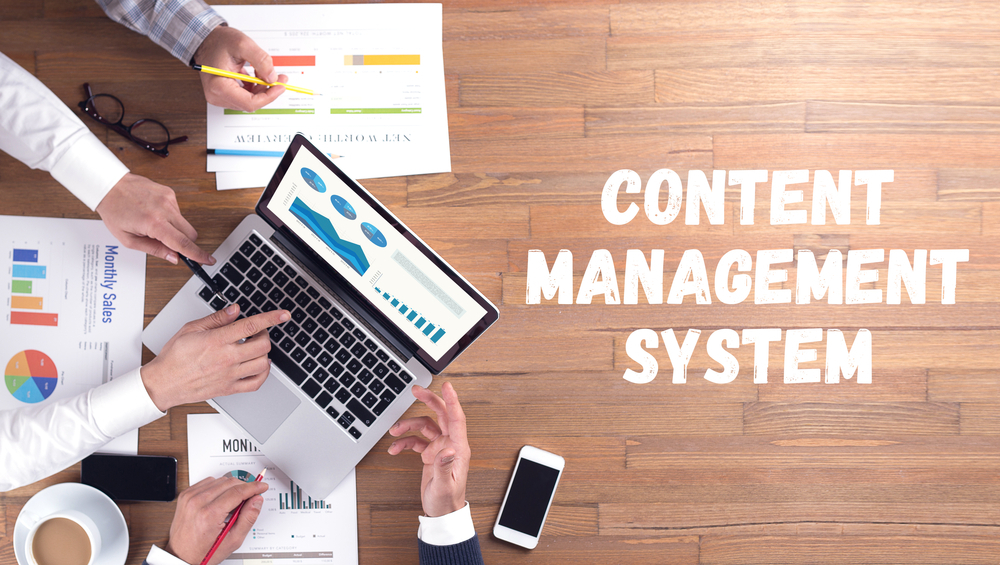
Content management system is a rage nowadays!
To make sure that your website is engaging, educational, and consistently updated, businesses are taking the help of content management software.
In the past, knowledge in software programming was required for creating, maintaining, and changing websites. Nowadays, anyone, including those without technical expertise, can build and maintain a website without the need for coding knowledge thanks to intuitive content management system (CMS) software tools.
But do you have any idea which content management system to go with?
The increased relevance of your choice is highlighted by the fact that you are unable to switch to a new content management software with the simple click of a button and experience a seamless transition.
Therefore, what types of elements should you take into consideration while selecting a CMS for your website?
Which functionalities should be given the highest priority?
Should you be leaning more towards a hosted solution or a SaaS option?
Who exactly should be included as the primary decision-makers in this process, and why should they be involved?
These are the questions which might wander through your mind. We are here to answer them all. Let’s dive in.
1. Implications for Commercial Activity
The two basic categories that can be used to classify CMS systems are referred to as "Development platforms" and "Solution platforms."
The development platforms give you a blank canvas to work off of, which enables you to create your ideal system from the ground up.
On the other hand, solution platforms already have their configurations set up but can be modified to fit your specific needs.
When you are thinking about the impacts that this decision will have on your company, it is imperative that you think about the obligations that you will take on when you choose a platform.
2. Need
Integrated analytics, which make A/B testing of content and user journeys possible, should serve as the basis for your responses.
Updates to the website, changes to the content, and the implementation of landing pages for targeted marketing are all afterwards influenced by this information.
The manner in which the CMS platform manages continuous changes ought to be evaluated as an essential component of the decision-making process.
3. Combining Various Technologies
Your CMS cannot function in a vacuum at any time. Because technology now affects every aspect of running a business, it is essential that your CMS content management system be able to interact without any hitches with the many marketing, sales, communication, and project management activities you undertake.
To get started, you should first carry out a detailed analysis of the available technology. Be sure to make a note of the instruments and technology you use for each of the following purposes:
The majority of these solutions can either send data to or get data from your content management system (CMS).
4. Sets of Abilities
This is a step in the CMS selection process that is frequently skipped over, despite the fact that it plays a significant role in determining how successful any CMS implementation will be.
Simply put, you should go with a content management system (CMS) that your team will be able to use efficiently. This can be broken down into two primary categories: the first is technical expertise, and the second is end-user competence.
A. Technical Skill
Your current information technology skills should be the primary focus of the first consideration.
Recognise that setting up, maintaining, and protecting a content management system can be challenging endeavours. If you do not have the in-house IT skills required for these functions, you may find that the only option available to you is to completely discount on-premise or hosted solutions.
Consider the following questions as you do so:
B. Competence of the Final Consumer
It is crucial to evaluate the user-friendliness of the CMS for your end-users, including salesmen, content developers, and marketers, in addition to the technical concerns that must be taken into account. Choose a content management system (CMS) that your end-users will be able to navigate without difficulty and without the need for additional training in the best case scenario.
Safety and Protection
There is no doubt that security is a very important factor. You need a content management system that can properly protect your website's content as well as the data of your customers from any risks that may arise in the future.
Considerations to make include the following:
Blog Posting
Blogging is an important component in the larger strategy of keeping customers up to date on the latest developments at the organisation.
The content management system (CMS) software should not only be used to administer the blog, but it should also make it easy for content producers to create, edit, publish, and promote blog entries.
Because these blog postings have the potential to play an important part in the content marketing strategy of the firm, a CMS platform that allows for blogging is of great benefit to the business.
Customizations
It's not always the case that the content management systems that offer their customers a comprehensive solution out of the box are the most effective ones.
Instead, it is they who grant customers the ability to modify the platform in accordance with the particular specifications of their businesses.
You should have the ability to change the user interface (UI) and user experience (UX) for both your in-house content authors as well as end users. This will provide you complete control over the experience that your customers have.
Marketing Through Social Media
A CMS content management system that is capable of distributing material to social networks is no longer a luxury; it is a requirement.
Take into consideration the following:
Choose the one that give you ample flexibility to create and distribute.
We are here to assist with your questions. Write us a message, and we will get back to you shortly.